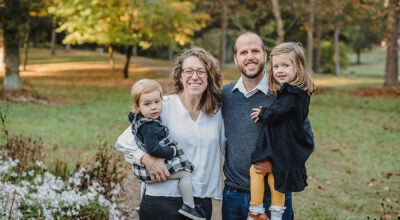People with Energy-efficient Vehicles Find Priority Parking in Rowan, Cabarrus
Published 12:00 am Tuesday, February 7, 2012
By Kathy Chaffin
At least half of the 14 priority parking spaces for low-emitting, fuel-efficient vehicles in front of Building 400 on Rowan-Cabarrus Community College’s North Campus in Salisbury are full when classes are in session.
“Obviously, we have students and staff coming in and out,” says Paula Dibley, college relations, marketing and communications director for RCCC, “so it’s not the same vehicles all the time.”
People visiting the campus in hybrid or electric vehicles are also allowed to use the priority spaces, which, like parking spaces designated for handicapped drivers, are easily accessible to the building. Dibley says the community college follows an honor system in enforcing parking in the priority spaces.
“We don’t go out there and check all of them,” she says, “but we abide by the EPA list of low-emission and energy-efficient vehicles.”
This RCCC building and others in Rowan and Cabarrus county have received or are in the process of earning LEED (Leadership in Energy Efficient Design) certification from the U.S. Green Building Council, which awards points for providing priority parking for hybrids, electric vehicles and carpoolers.
Building 400 – a 39,000-square-foot classroom building for public service training, workforce development and continuing and corporate education programs – was awarded LEED Gold Certification in January. Gold is the second highest of four certification levels available based on points earned through various energy-efficient criteria.
The RCCC building at the N.C. Research Campus in Kannapolis, which is 62,000-square feet in size and LEED-certified, has 20 priority parking spaces for hybrids, electric vehicles and carpoolers. Dibley says those average being used 60 percent of the time.
The Fibrant Customer Service Center building in Salisbury – headquarters for the city’s fiber optic telecommunications service – has three priority parking spaces for hybrids and electric vehicles, according to Karen Alexander of KKA Architecture of Salisbury, the building’s designer. “It’s advocacy for those kinds of cars,” Alexander says.
The building, located at 1415 S. Martin Luther King Jr. Ave., was designed according to LEED requirements and is going through the process for LEED Gold Certification.
Also considered in the certification process is whether there is a bus stop at the building. The city of Salisbury arranged for a bus stop to allow Fibrant customers using public transportation to get to the customer service center. The bus stop has been in operation since the fall of 2010.
Food Lion’s Customer Support Center at 2085 Harrison Road is a LEED Silver certified building. It includes spaces for vans that carry multiple employees.
***
The Center for the Environment at Catawba College was founded in 1996 to provide education and outreach centered on prevalent environmental challenges and to foster community-oriented sustainable solutions that can serve as a model for programs throughout the country. For more information, visit www.centerfortheenvironment.org or www.campaignforcleanair.org.





